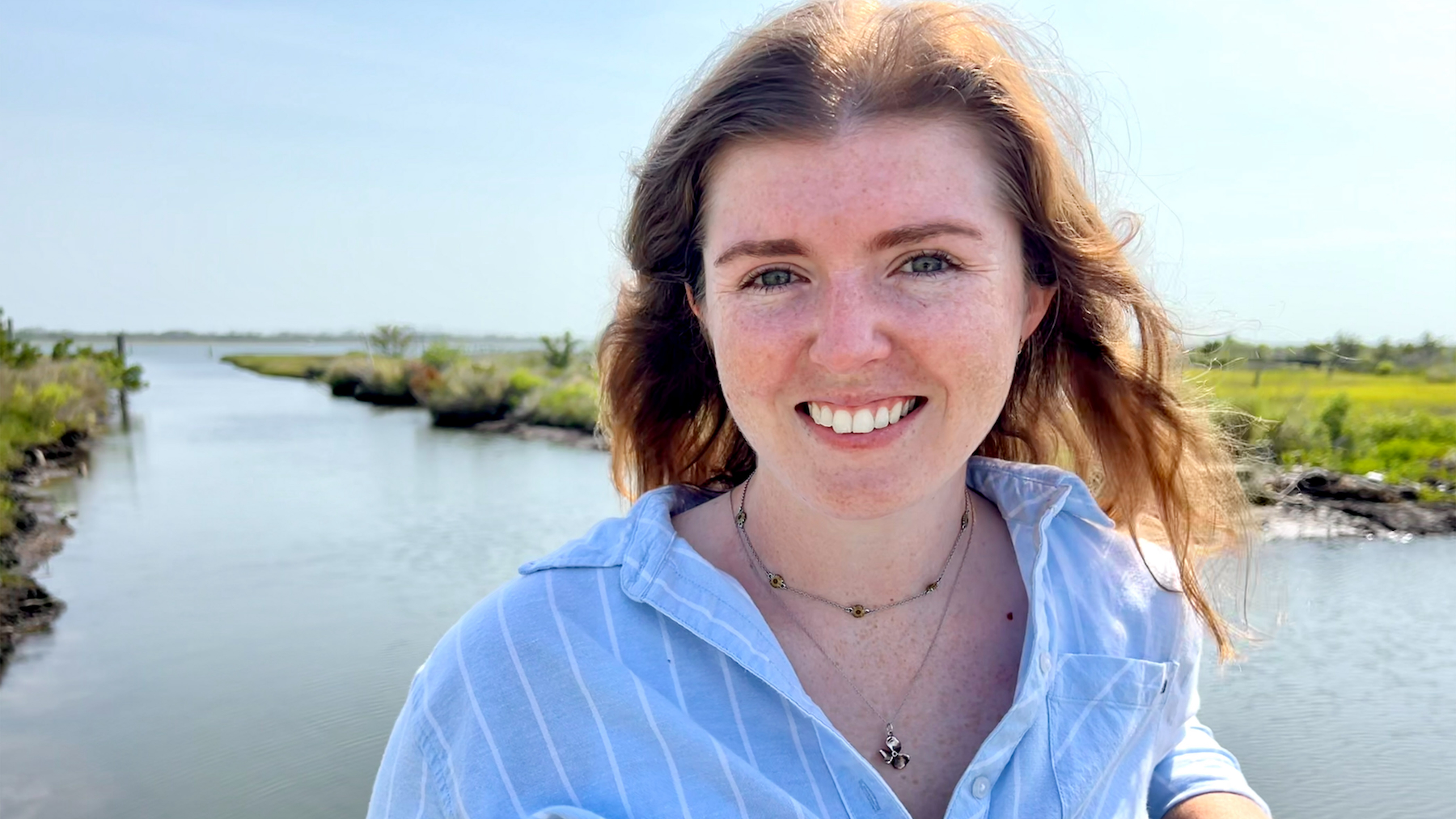Marine Science Students Continue Studies Amid Outbreak

By Mike Shutak,
Originally published in the Carteret County News-Times.
While marine science students’ fieldwork has been put on hold due to the coronavirus outbreak, their learning continues with data analysis, writing and online courses.
In Carteret County, there are three marine research facilities dedicated to teaching and studying marine science: the UNC Institute of Marine Sciences in Morehead City, the N.C. State University Center for Marine Sciences and Technology, also in Morehead City, and the Duke University Marine Lab on Piver’s Island in Beaufort.
Safety measures to avoid infection began ramping up in mid-March, and the three institutes closed their facilities and stopped holding in-person classes, instead switching to virtual classes.
CMAST Ph.D. student Brendan Runde said he and his classmates “have absolutely been affected” by the outbreak and the safety measures taken, particularly the lack of fieldwork.
UNC-IMS Ph.D. student Malcolm Barnard said his research also has been “put on hold” because of his inability to do any fieldwork.
“I’m working from home, working on data processing and writing,” Mr. Barnard said. “There’s a lot of uncertainty when our fieldwork can resume, particularly my fieldwork studying the western Lake Erie harmful algal blooms.”
Mr. Runde said while fieldwork is “off the table,” data analysis and writing are still possible.
“The good news on that front is that data analysis and writing are what graduate students spend most of our days doing anyway,” he said. “The bad news is fieldwork are the days that most of us truly love.”
UNC-IMS Ph.D. student Dr. Shelby Ziegler said the outbreak affected her dissertation defense presentation in late March. Dr. Ziegler is in her last semester, and IMS Public Information Officer Kerry Irish said has earned her “doctor” honorific.
“I was still able to defend,” Dr. Ziegler said, “but I was in a room alone with my advisor, speaking to the audience via Zoom. While I’m happy I was able to finish during this time, if felt like I lost out on the full experience of sharing the culmination of my graduate work with family and friends and celebrating these accomplishments.”
With classrooms off limits during the outbreak, Mr. Runde said he only has one course this semester with just six classmates, which is now being hosted on Zoom.
“I shudder to think of the logistics associated with delivering an undergraduate course, like general biology, to 200-plus students using Zoom,” he said. “Now more than ever, we should be thanking teachers, from pre-school all the way to graduate school, for their dedication to their students.”
Dr. Ziegler, meanwhile, said she didn’t have any classes at this time. Mr. Barnard said he doesn’t have any courses this semester either.
When it comes to personal responsibility, Mr. Runde said he and his classmates are “social distancing and trying to be responsible about journeying into the now-scarier-than-ever world.”
“Mercifully, most graduate students in the sciences are paid via research assistantships,” he said, “which provide a modest stipend in addition to paying tuition.”
Dr. Ziegler said she thinks everyone is dealing with the outbreak in their own way.
“For the most part, students are safe and healthy and luckily have plenty of work that can be done at home,” she said. “It’s definitely a hard transition from being at the lab or on campus everyday, interacting with one another, to being relatively isolated at home. The uncertainty of the COVID-19 situation has put undue pressure on many people and increased overall anxiety.”


